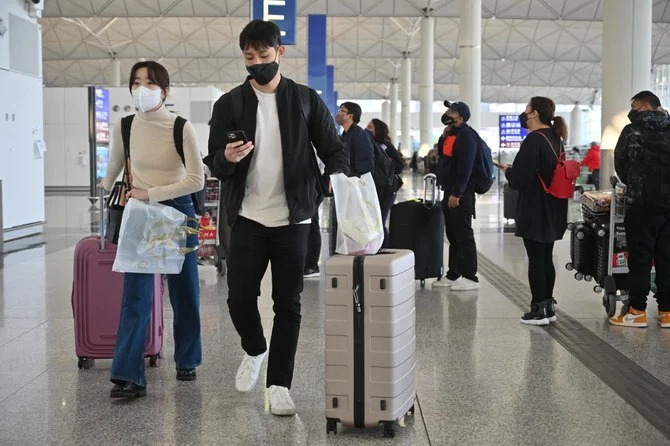The United States requires all travelers from China to present a negative Covid-19 test result before entering China.
A passenger heading to the United States from China must be tested at least two days before her flight and provide proof of a negative test result to the airline before boarding, according to federal health officials.
Through the use of telemedicine services, testing is either a PCR test or an antigen self-test.
The requirement applies to passengers traveling directly to the United States from China, including Hong Kong and Macau, and passengers transiting popular third-country gateways such as Seoul, Toronto, and Vancouver.

Passengers who tested positive more than 10 days before their flight can submit proof of recovery instead of a negative test result. The new rules will take effect at noon.
1:00 AM ET on January 5th.
Officials from the United States have raised serious concerns about China’s lack of transparency about the most recent spike in cases, specifically the absence of genome sequencing data that may be used to identify novel coronavirus strains.
A government health official stated, “We realise these steps will not eliminate all danger or prevent persons who are sick from entering the United States.” Nevertheless, “when combined, they will help reduce the number of infected individuals and give us a head start on emerging varieties.”
According to US health experts, the January 5 deadline was chosen to give airlines enough time to modify their operations to implement the new standards. The authorities said they would “watch the situation on the ground and modify as needed,” although they did not specify for how long they anticipated these measures to be in effect.
The Traveler-based Genomic Surveillance programme will now include airports in Seattle and Los Angeles, bringing the total number of participating airports to seven, with roughly 500 weekly flights from at least 30 different nations covered, according to officials. There will be about 290 flights per week from China and adjacent areas.
By implementing this pre-departure testing programme, the official added, “We’re increasing that to hopefully pick up any variant that may appear” as well as “to reduce transmission of a new variant.”
In response to worries over an increase in instances, Japan and India have introduced Covid-19 safeguards for travellers from China.
Japan will start requiring Chinese visitors to take a Covid-19 test at the airport on December 30. Visitors from China, Japan, South Korea, Hong Kong, and Thailand are required to show proof of a negative Covid-19 test upon arrival in India, and if they test positive, they will be quarantined, according to Indian authorities.
Following the elimination of its long-standing zero-Covid policy earlier this month, China has started to slacken its strict Covid-19 controls. When China declared on Monday that foreign visitors will no longer need to be quarantined beginning on January 8, it made a huge step toward normalising its borders.
However, the abrupt abandonment of China’s strict health policy caught many residents by surprise and has put a strain on the healthcare system as it deals with a rise in infections.
In a statement, officials stated that “for foreign travel, the CDC continues to suggest masking during travel, self-monitoring for symptoms, and testing for three days following arrival.”
Authorities claimed China uploaded “only about 100” new sequences to public databases in recent weeks, “including Omicron subvariants like BA.5”, but the CDC questioned the limited sample size.
A representative said, “What we’re concerned about is a new kind may actually emerge in China. Given how many people in China fell ill so quickly, there is a chance and a likelihood that a new variety will develop.
An official said that the government was currently more concerned with the volume of data than the accuracy of the data or whether China was being truthful and transparent.
In terms of information that is being communicated on the number of cases that are leading to an increase in hospitalisations and, particularly, deaths, he added, “we just have limited information.” Additionally, testing has decreased all around China. Therefore, it is challenging to determine the true infection rate.
China’s foreign ministry urged all parties to cooperate to maintain the security of international travel and the continuity of the global supply chain in response to allegations that the US is considering placing restrictions on visitors from China.
“We need all parties to work together scientifically against the epidemic to ensure the safe movement of people between countries, maintain the stability of the global industrial supply chain, and promote the resumption of healthy growth in the world economy,” said Wang Wenbin, a spokesperson for China’s Ministry of Foreign Affairs, during a press conference.


